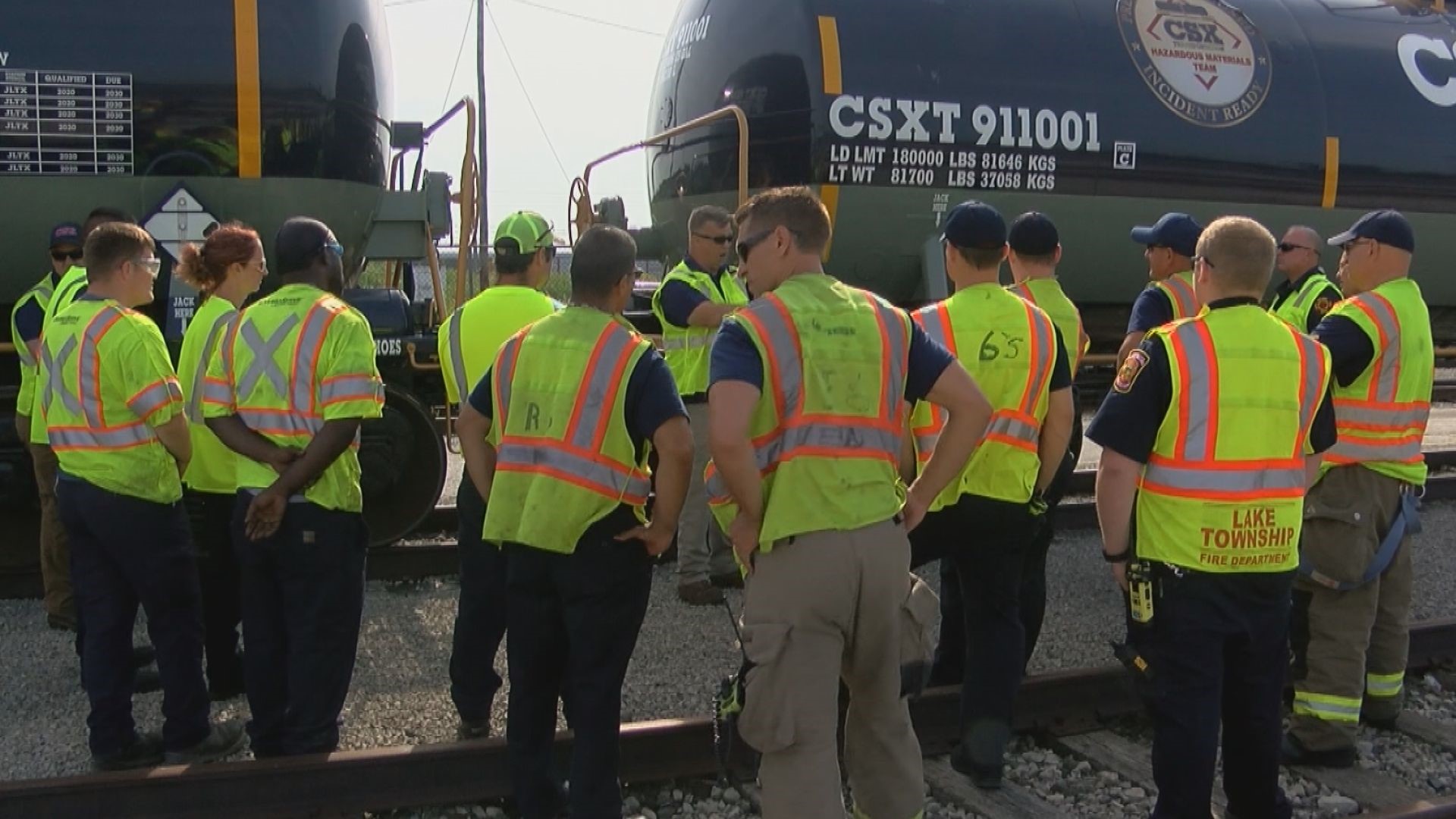TOLEDO, Ohio —
Government officials and various industries are bracing for the possibility of a nationwide rail strike that would paralyze shipments of everything from crude and clothing to cars, a potential calamity for businesses that have struggled for more than two years due to COVID-19-related supply chain breakdowns.
William Sawaya, a Bowling Green State University business professor who specializes in supply chain, said the longer it takes before workers and rail lines strike a deal, the harder the country will be hit.
"I think if it's a whole week, you could start to see some holes at the grocery store, I would think," he said. "But I think if they strike on Friday, and Congress steps in and resolves it by Tuesday, I don't think you will."
Sawaya said agricultural products, coal, and raw materials are particularly reliant on rail, and delays in transportation would cause spikes in already inflated prices.
"It could ripple through out the entire economy," Sawaya said. "They transport a little bit of everything in containers, especially goods from overseas, so those things could be impacted."
Ohio in particular would feel the blow because of the state's large manufacturing industry.
"Because we have such a large manufacturing base, if we're not able to get raw materials, that has a chance to effect workers disproportionately in Ohio, but I think that will happen if it lasts for more than a few days," he said.
There are 12 unions — one with two separate divisions — that must agree to the tentative deals. The unions and the railroads have been working through the Presidential Emergency Board process for about a month, attempting to hammer out a deal. The two sides entered the process far apart on terms after several years of negotiations and no raises for workers since 2019.
The unions want 31 percent pay raises over five years while the railroads offered 17 percent in compound raises. The two sides also disagree on how much more workers should pay for health insurance in a new contract.
The Presidential Emergency Board Joe Biden appointed this summer called for 24 percent raises and $5,000 in bonuses in a five-year deal that’s retroactive to 2020. The deal also includes one additional paid leave day a year and higher health insurance costs.
Ohio's Democratic Sen. Sherrod Brown said he supports the rail workers.
"Rail workers in Ohio deserve fair wages and benefits, dignity at work and a fair contract with staffing levels that ensure their safety and the safety of the communities they serve -- they shouldn't be afraid to take a sick day without fear of getting fired," Brown said in a statement.
The many businesses that rely on railroads to deliver their raw materials and finished products say a rail strike would cause significant problems particularly for oil refineries, chemical businesses, auto makers, retailers and agricultural groups. The Association of American Railroads trade group estimated that a strike would cost the economy more than $2 billion a day.
Businesses would likely try to turn to trucks and other modes of shipping if the railroads do shut down, but there isn't enough trucking capacity to take up all the slack. The railroad trade group estimated that 467,000 additional trucks a day would be required to deliver everything railroads handle now.
A freight rail strike would also disrupt passenger traffic because Amtrak and many commuter railroads operate on tracks owned by the freight railroads. Amtrak has already cancelled a number of its long-distance trains this week.
More on WTOL:

